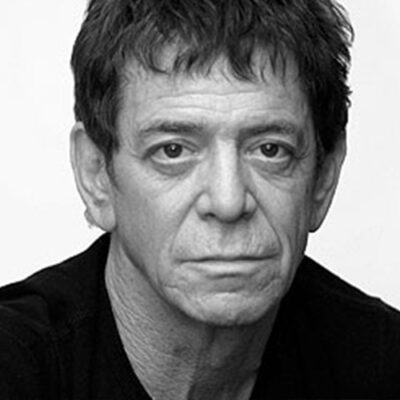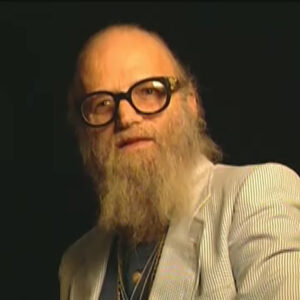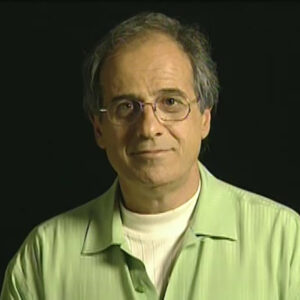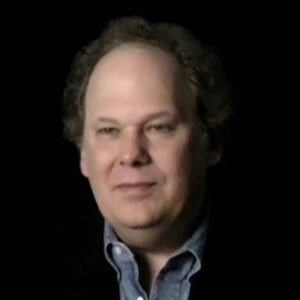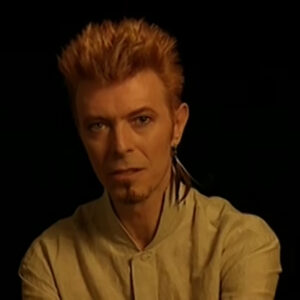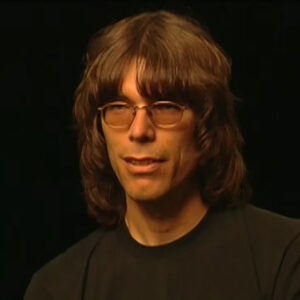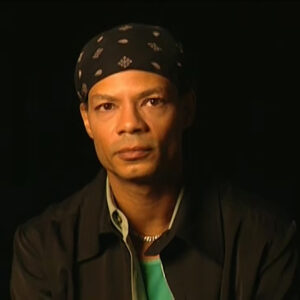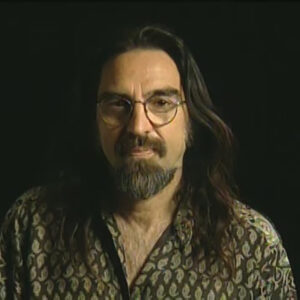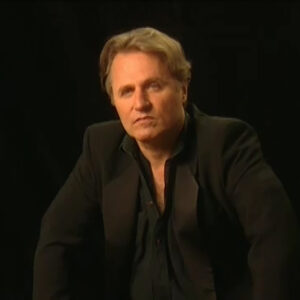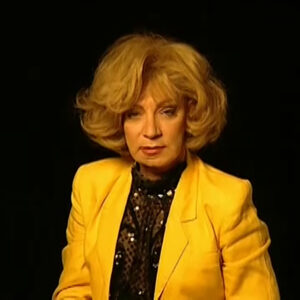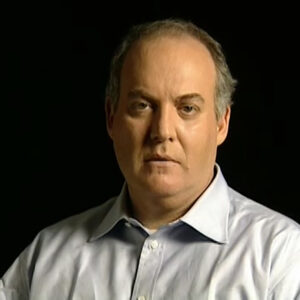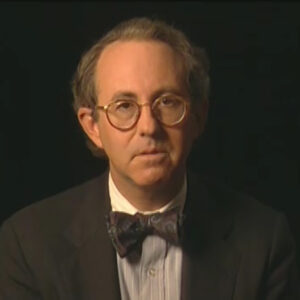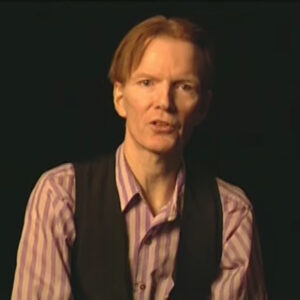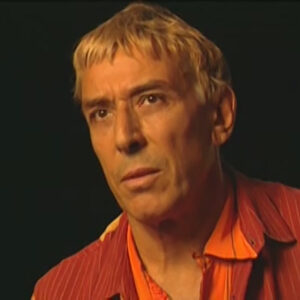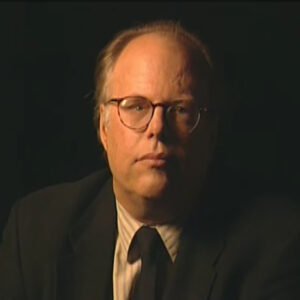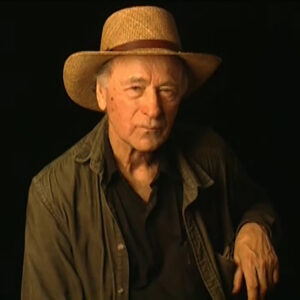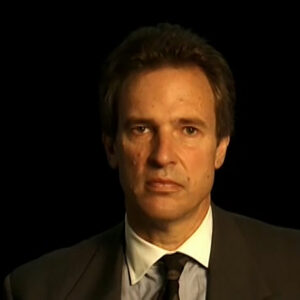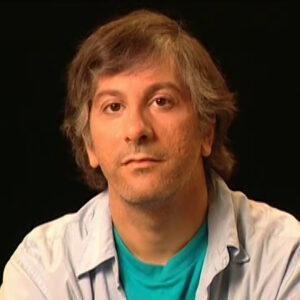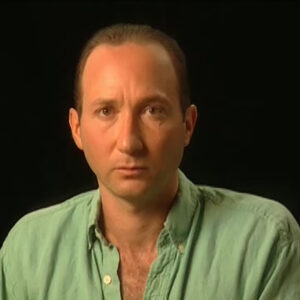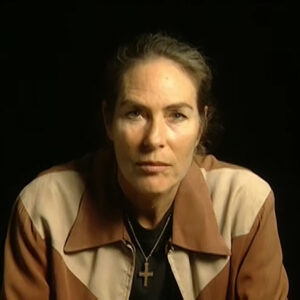Speaker Well, let’s see, I was 19 years old and very ambitious at that point. I had been a dancer for most of my teens and I started writing songs when I was about 14. So I had given a lot of concerts. I I’d started performing when I was about 16, but I didn’t really get out of the house much except to go to auditions and to to try and earn money, babysitting and stuff like that. So I was rather introspective. And so this boy that I knew from the theater had said that he had an extra ticket to this concert at at Dodge Auditorium, I guess it was in Columbia. And so it wasn’t my first date, but it might have been my second third. And he asked me, did I want to go see Lou Reed? And I said, who’s that? And he said he was part of a band called The Velvet Underground. And I said, Who’s that? And he said, You never heard of the Velvet Underground? And I said, no. So I still remember standing on line, waiting to get in and someone turning around and saying, Are you Suzanne Vega? Because I had been playing on campus, you know, mostly folk, you know, my folk things that I had been writing until that point. So we went in and I remember particularly that it was in two halves. The concert was to have set in the first half of it was pretty out of control. It was Lou Reed yelling and then shouting things at the audience. The audience were shouting things back at him. And this seemed to be something that everybody knew that they were expected to do that somehow. I don’t know how they knew that. But and he was smoking cigarettes and shooting them into the audience. And people were shouting and saying, you animal. And he shouted things back. He’s throwing the microphone stands over and he’s terrified. Technicians are running out and setting them back up again and smack them down again. And he’d go over and kiss the lead guitar player on the mouth. And and then at one point, I think he was pretending to shoot up. I think his head was wrapping his arm and doing all this stuff, so.
Speaker No, I was not very happy to be there. And I remember asking the guy who brought me, I said, you know what?
Speaker What? You know, you like this. I mean. And he said, yeah, I like the music. And I don’t really know what he’s talking about. And then there was an intermission. And then at the end of the intermission, Luke came back and you played I played a solid set. And there was there was none of the theatrics that there was for the first half. And he played a lot of things. The song I remember best was Caroline says, part two, because those words were very clear. The first four lines of that song, as you know, Caroline says as she gets up off the floor, you can hit me all you want to, but I don’t love you anymore. And I remember that really those lines really stayed with me because I had never really heard songs that showed that side of life before. And so the whole concert stayed with me for for quite a long time. And from there, I started to get curious about Lou and I would see what I could find out about him. You know, he wasn’t popular at the time. He wasn’t on the radio or anything. So it took a couple of years before I’d actually go out and try and find his record. And then I would take my lunch break from when I was working as a receptionist. I’d gotten out of school and I was working as a receptionist. And I would go stand in front of the R section and try to figure out which album to buy because I didn’t have much money. And so I don’t want to waste my money on something that was, you know, no good. So after weeks of trying to decide which of the records to buy, I finally bought the Berlin album, which had that song on. It had the Caroline says part two. And I also bought it because I noticed that he played all the acoustic guitars. And so I wanted to know what that was all about. And I found myself really kind of fascinated and attracted to the whole his whole scene.
Speaker Talk about it.
Speaker You said that you want to. Yeah. Start that again.
Speaker Well, I’d gotten the idea from Luka. I’d gotten the idea for Luca from a boy who had lived in my building. His name was Luca. I’d seen him in the street. He’s not an abused kid so far as I know. He’s perfectly happy kid. He was very kind of sensitive looking, but kind of a wise guy at the same time. And I liked his name. And I knew I wanted to write about violence and about abuse at some point. Just because it was it was everywhere. It was all over the place in the neighborhoods that I grew up in. I grew up in East Harlem and on the Upper West Side of New York. And so it was just something that I knew I was going to write about at some point. And I guess I spent I remember the day I wrote Luca. It was a Sunday. And I remember I would listen to lose music when I wanted to focus myself or when I wanted to get myself ready to write about something that I thought was really difficult. So that day I was listening to the Berlin album and I was trying to find a way into the song. I mean, it’s been months that I’d been thinking about the song. Look, I knew that I wanted to write it through the eyes of this nine year old boy. And so that day, I listened to the whole record a couple of times. And it was a way of kind of focusing myself to write about something that was difficult to write about.
Speaker For me.
Speaker Record yourself, talk about how he’s encouraged you to write about material, about something.
Speaker Yeah, well, I was always attracted to songwriters who would write about things that you wouldn’t hear about on the radio. And I was born in the late 50s. And so, you know, through the 60s, you’d hear stuff on the radio. And a lot of it had to do with love and peace. And, you know, optimistic sort of hope, hopefulness in which is OK. But on the other hand, there was a whole undercurrent of other things that were happening. And that’s what I found expressed in the music of the Velvet Underground and the music. Lou Reed seemed fearless about writing about those parts of daily life that were everywhere but that people didn’t want to hear about on the radio.
Speaker I mean, I guess walk on the wild side. Had been a big hit in 1972 when I was twelve. And I had listened to it and I didn’t understand the words and I wasn’t really listening, you know. But the big joke about that song is, of course, nobody the censors must not have known. You know, the censors at the BBC in England, for example, must not have known what giving head meant because they just let the song all right by. And it was this big hit on the radio. So.
Speaker But it’s true, though, that that seemed to have the sort of confronting of way of writing where he could turn around and look at something squarely in the face without even romanticizing it so much or glamorizing it or making it sort of vague or furry around the edges. He could really sort of document it, put it out there flat. He wasn’t looking for pity or for even for understanding, really. He was just looking to put it out there as he had experienced it. And that was my feeling about what he was doing.
Speaker There was a sort of I like the confrontation.
Speaker In the way that he wrote this of flatness about it, and he seemed like a person who understood power games really well, you know the lines and I’m waiting for my man. Twenty six dollars in my hand. You know, the first thing that you learn is you’ve always got to wait. He could put those those situations into words so clearly and much more clearly than anybody else I’d ever heard before.
Speaker And so this I guess it it gave me hope in my own life that I could that I could do that myself about things that I knew about, things that I had experienced, that I didn’t have to always censor myself and kind of clean it up for. For an audience, even if it was painful or even if it was uncomfortable or even if nobody knew what you were talking about, you could still do it because you could still write it. And that somebody somewhere would need to hear it.
Speaker And that’s that’s the feeling I got from his writing.
Speaker How how I get this hair out of my mouth, right?
Speaker Yes.
Speaker Lou writes in the first person a lot, but it doesn’t necessarily mean it’s about Lou and that there’s something about it.
Speaker So I guess rock and roll or or popular music that way that you somehow assume that it’s about the person. Yes. Is that something that relate that you can relate to that? It’s just not a story about you when you write certain songs.
Speaker Some of it is. Some of it is. But people kind of think it’s about.
Speaker Well, to me, it never mattered to me whether it was Lou speaking about himself or not. I mean, I suspect that he was speaking about himself for a good part of the time, but it didn’t really matter to me whether he is confessing or not. What mattered to me was that I knew that it was real. I mean, even though it wasn’t even if it wasn’t true for even though it’s not, Lou, reading your pages of his diary and confessing this and that, which ultimately I think is really boring, I think he was writing about things that were real.
Speaker And I assume because of that, that they put that he probably had some experience when he when he sings about heroin, I’m assuming that he’s had experience with it. I don’t know whether he always feels like that or whatever, but I knew that that that it was that it was real. So.
Speaker You went to a lot of shows to talk about that.
Speaker Yeah.
Speaker There was a time there where I would really go out of my way to see Lou Reed perform anywhere that I could. And then at that point, it was always great to see him in New York because it was always a packed house and was just great. I mean, you could just go there and yell and scream. And the audience was always really with him. And he’d play all these songs and it was great. I just remember seeing him at the Ritz a couple of times and just having this very great sort of cathartic night.
Speaker And some nights I’ve got to go just by myself and just hang out in the balcony. And I would never try and get backstage or talk to him or anything. And then later on, that changed a little bit. One time I made my me and my band guys, like, drive a couple of hours to go see and play in Rhode Island.
Speaker And that was a completely different experience because it was like it was half filled. It wasn’t it wasn’t New York. It was a whole other kind of thing. And he was trying to get the audience to participate.
Speaker And it wasn’t quite the same experience for me. But I would read anything about him. I could read. I would. I thought about him a lot. I would see him perform whenever I could. I would listen to his albums. You know, it’s kind of a funny thing, I guess, in a sense. I wanted to I wish I could be like I wish I could be him. It wasn’t that I felt that I. Well, you know, as a woman, I didn’t feel like I was in love with him. I wasn’t wasn’t that kind of thing. I didn’t never had the wish to be to sleep with him or be married to him. I think like that it was always I wish that I could be like him. I wanted to be him onstage. That’s what I wished. I wanted that kind of freedom. I wanted that sort of cruelty. You know, I wanted to be able to to confront in that way. And so when I wanted to get myself in that mood, I would I would listen to him and I would think about him. And because there was a sense of shared experience, that’s what I felt when I would go to his shows, I would listen to his words. And I felt that that he understood things about life that I felt I understood. And that’s why I was there.
Speaker What do you mean the you say he said, you know, I want to be like freedom.
Speaker Yeah, well well, because obviously when you see when I saw him on stage, especially that first time, he he was free to express himself as he wanted to. I guess I don’t know where I must have gotten this feeling from. But as a kid growing up, I was always very contained. I still am as a as a person. I’m very I don’t I don’t have a lot of temper tantrums. You know, I tend to keep things in until they come out. And so for me, the idea of being spontaneous like that on stage or through or being cruel enough to throw a lighted cigarette at somebody you know. And you know what? If you really hurt them, I mean, that was fascinating to me. And it was something that I wanted a part of. You know, I would have liked to be that way on stage myself. It’s something I still would like sometimes. And I think with my later music, I’m starting to get to the point now where I’m not afraid to use abrasive sounds and that kind of thing, and some of the audience doesn’t like it. And I’ve had people leave because they don’t like blood makes noise or something like that. But on the other hand, I think if you’re going to go for that kind of emotional honesty, you’re going to get people who don’t like it. That’s right. So it makes sense. I mean, it is also moving.
Speaker My next guest is going to be. You said earlier that surprised by it, even usually because his being was saying what’s on his mind, right? Yeah, I can.
Speaker There are times where he’ll write a song and you can tell he’s expressing his opinion.
Speaker And I can’t think of an example right this minute. But for me, an opinion is not a song. You know, no opinion is an opinion. You have it. You know, you you have opinions during a conversation. But if you put it in a song, it doesn’t doesn’t always carry for me. So for me, that’s the weakness. Sometimes in some of his lyrics, especially later on, he’s telling you what he thinks about something, you know, usually complaining about something. Right. And so for me, that doesn’t make quite as good a song as when as when he’s writing, say, I’m waiting for my man or something like that. It’s such a clear setup in the character. That and the point of view that he’s writing from is so clear. And it’s all of a piece.
Speaker It’s not sort of distracted by what I feel are pettier sort of emotions, you know, when you want to focus so that you use those words.
Speaker There are several people that I listen to when I want to get myself going or when I want to feel inspired or when I want to get myself in the frame of mind for writing songs. And Lou Reed is one of them.
Speaker I mean, Leonard Cohen is one also I listen to him when I want it, sort of emotional depth. Bob Dylan, I listen to when I want to feel that my mind is expanding in a certain way that it doesn’t normally do.
Speaker And Lou Reed, I listen to when I want something to be focused and economical and when when I want to write about something that’s really difficult for me to write about because he uses very few words and he gets the he gets the the story out right away. And that’s what I listen to him for, a song for me. Like Men in a War was clearly based on the especially the guitar riffs were based on. I’m Waiting for my man. It’s a song about, you know, what you would call in this day and age. You would call it post-traumatic stress syndrome. But and so that was a hard song for me to write. I’m still not sure I nailed it. But I but it was something that I got myself geared up for by listening to to Lou Reed.
Speaker We had some problems that when you when you were saying, oh, you’re the guy who brought me. We’re talking about the initial experience.
Speaker Yeah. And you said I prefer that. Oh, that’s right. I heard that one section again. Right. Okay.
Speaker You just stay safe for us. After we go, pick up the story from about that point.
Speaker It was around that point that the plumbing thing.
Speaker You see what I can do with the audio? Yeah. I turned and off the guy who brought me. Okay. That’s a great story I want. All right.
Speaker Well, let’s see. Well, at that front part of the show was being very confronted with the audience and they were being really confronted back.
Speaker They were screaming at him and he was screaming at them. He was throwing lighted cigarettes at them. And they were shouting at him and then screaming, you animal, which I guess was also sort of a reference to rock and roll animal, which had come out a couple of years before that.
Speaker And doing all this other stuff, smashing them, the microphone stands down to the floor. And so I turned to the guy who had brought me and I said, you know, you like this? And he said, Yeah. And I said, Well, what do you like about it? And he said, I like the music. And it had an it didn’t even sound like music to me. It didn’t. It didn’t. So I didn’t know what he was talking about. And then later on, it was an intermission.
Speaker And then Lou came out and he played like probably a solid hour of just like of solid music. And he didn’t do any more of the theatrics that he’d been doing all through the beginning. And I that’s when I realized that it was a show was like it was like it was like theater was something that he had done deliberately, wasn’t that he was just kind of out of control, you know, but that he had done it for an effect and deliberately to provoke the audience. And that made me start thinking about in a different way.
Speaker Anything. You know, women.
Speaker Well, it is an interesting question. I mean, the depiction of the women in his songs usually horrible. I mean, usually horrible. They’re masochistic. They’re he’s usually abusing them or, you know, I should have broken both their arms.
Speaker I mean, you know, that kind of thing.
Speaker But again, because I was listening to the music, not as someone who is a woman in his world. You know, I didn’t want to be a woman in this world. I identified with him. I wasn’t that I wanted to go out with him. So therefore, I look at the women in his songs and I have to say it and identify with them. Although. I mean, I still admired him, even though I could see how he how the women and his songs were always, you know, pathetic at the same time, how he could write a song like Caroline says Part two, where the woman’s getting off the floor and she says that you can hit me all you want to, but I don’t love you anymore. And for me, he he must have understood somehow what that felt like. He must have he must have been able to identify with those women somehow to be able to write from their point of view like that. And that’s what was also intriguing to me and and fascinating to me. So it wasn’t that I thought he was, you know, as a feminist, I didn’t admire him for his enlightened point of view. It wasn’t like that. But at the same time, there were there were things I just couldn’t. And some of this I’m sure I know I don’t know the reason why I had a certain fascination for him. I mean, a lot of it is unconscious or whatever, but it it was more a question of wishing to be like him.
Speaker You talked about earlier, which I think set the stage for context of those days.
Speaker It was very, very special to me, right in the way he wrote and to write about and to write about drugs and violence and all that’s happened today or whatever it is. Everybody sort of writes about this. They’re all there like it’s nothing.
Speaker Right. Yeah. That’s changed.
Speaker Put it put into perspective.
Speaker Well, you know, I guess back in the 50s, in the 60s, a lot of show business, which was that was show business. It we’re coming out of the 50s where he had all these glorious Technicolor musicals and everybody looked fabulous and they were all, you know, the false eyelashes, the beautiful hair and the costumes and everything and everything was clean and scrubbed. And it was kind of that way on the radio, too. And so Dylan kind of broke that open with with. Hey, Mr. Tambourine Man and the writings that he had done, especially against the Vietnam War. Later on in the 60s. And so so Dylan kind of cracked it from the top 40 perspective. You could you could hear him on the radio, but you couldn’t hear Lou Reed on the radio. And it was because the world he was writing about was so violent and so ugly that it was not tolerated. You know, it wouldn’t have been tolerated on mainstream radio, which is why, of course, we were all attracted to it, because it was not forbidden, you know, in the conventional sense. But in a sense it was. And so that’s why we were all attracted to it, because was truthful and was forbidden.
Speaker And you didn’t hear stuff like that on the radio.
Speaker And now, of course, it’s, uh, it’s a whole different time. And now you have you know, you’ve had grunge and we’ve had indie rock and we’ve had we have Trent Reznor singing about what he sings about and that’s gone top 40.
Speaker And so now you have a kind of a culture in which it’s very chic to be depressed in tribute, to feel suicidal and to to take drugs and to write about your your feelings and and to kind of come forth with all of your pain and anguish. And it’s all top 40, which is amazing to me in a sense. And then it kind of loses a lot of its edge because it’s so. Because everyone’s to glamorize and glorify their own pain.
Speaker And I mean, everybody feels pain. But at this point, I think we’re saturated with it.
Speaker And ironically, you know, the country itself is not really you know, we’re not at war with anybody. We’re kind of resolving things in the world.
Speaker And in a sense that there are a lot of a lot of the things that have been provoking anxiety like the Cold War. Well, that’s love has been resolved. And ironically, we go we have all this angst and pain and drug addiction and everybody’s horrible childhood stories coming out.
Speaker Thank you, sir. I’d like to talk about that. I forgot.
Speaker I mean, are there any things about Lou or any of these particular songs or albums that, you know, I’ve always meant something to you or hear anything else from Brandy? I’ll be your your. I mean, that’s one of the songs I’ve always thought of.
Speaker Oh, I like that song well enough. I’ll be your mirror. No, I liked. I can’t think of them right this minute, but mostly, like I said, the thing is, when I think about Lou Reed, I still think about the tone of his voice. I think about his his voice and the way he sings. And to me, it always sounds familiar. It sounds like.
Speaker Like a friend who’s telling me something and I mean. And also the other thing is that through the years, I’ve got to know a little bit better. I mean, I’ve probably met him 15 or 20 times in my life. And he’s always been very nice to me, which I’m appreciative of. But. And so that’s also been kind of funny, like seeing someone from that great distance and then kind of getting to know them a little bit better. And I’m always wary of him and I’m always respectful of him. But that’s been a funny experience through the years, you know, meeting him on these different at these different occasions. So that’s what I at least expected. So what else would I say about Emily?
Speaker Just that the voice a little bit more about a voice that really is a unique voice.
Speaker It’s a unique voice. It’s it’s a voice. And it’s perfectly suited for what he does. It’s it’s kind of a nervous sounding voice in a sense. It’s not a true kind of deep, manly voice filled with conviction. Recently, I guess I heard it because I was doing a little bit of a cover for a perfect day. And it’s just such a funny song. You know, it’s such a in a sense, it would it would be really corny if it was written by somebody else, except, you know, it’s talking about this perfect day, you the animals in the zoo, and then maybe later a movie, too, and then home. And, you know, you think, what the hell is he talking about? You know, what does he need to write about this for? And you realize he’s writing about it because he doesn’t experience it that often.
Speaker He’s writing about it from someone who’s looking at it sort of from the bottom up, someone who who for that, that’s a huge accomplishment to get through, to go to the zoo and to actually have a normal day. He’s writing about it from the outside, from a person who doesn’t experience that that often at an end. As that goes, it’s perfect. And he’s got the perfect voice for it. It’s the perfect. He’s the only guy who could sing heroine. I think convincingly, even Sunday morning. I mean, it’s perfect. His voice and the production, all of it together. It’s simple. It’s straightforward. It’s flat. There’s no sort of false sentimentality, sentimentality about it. He’s not trying to prove his point or it’s not opera. You know, he’s he’s not trying to dramatize it in your face. He’s just saying it flat out. And I loved it. It’s like it was perfect. That was what I wanted to do. That was the only way to express it.
Speaker Were you singing for the BBC? Yeah. Yeah. So did you. Do you have certain words you have to sing or.
Speaker It’s a perfect day. I sang. I sang the whole thing. And then they would pick it out. I’d feel like an idiot. I actually felt I could sing it really well. I felt I could really. But I don’t want to right now because I don’t have the backing track with me. It’s funny, even when I sing songs.
Speaker It’s hard to find songs to sing if especially if you’re woman because he’s always, you know, singing, you know, you just can’t sing them as a woman with a straight face or with sort of any credibility. But that one I found I could sing it really well. I know I don’t want to. I’ve been practicing. It’s been a month since I’ve done it.
Speaker But I think there’s a description of what it really is. Is that something that you you see that’s a good experience for you or you just think that’s so?
Speaker I think that’s the way that little comes to the song. And it’s also a way that I came to the song. I mean, I have never been a drug addict in my life, but I have experienced a lot of things in my life that make me feel like an outsider most of the time. I experience a lot of things growing up and saw a lot of things growing up that most people don’t. In my experience, when I speak to other people and I say and I tell them about my experiences, they say they they don’t identify with them without getting into the specific details of what that might be. So there are there are certainly.
Speaker So I know what that feels like. You know, when you have a normal day, when I had a normal day, when I was growing up as a kid, you’re your you can’t believe it. You’re you’re grateful for it. You’re doubtful about it. You don’t think it’s gonna last year is suspicious. You’re skeptical, you know, and you’ll record if you can because you don’t trust it.
Speaker So that’s why I know what he’s talking about, because I feel that I’ve experienced life from that outsider perspective, because I know I’ve experienced it from that perspective.
Speaker So the last question, can you should change?
Speaker Well, yeah, we were talking about whether that’s hilarious. His job is to kind of condense a know set. Some people can condense a novel down to a short story and a short story into a song. That’s what some people do. It’s not what everybody does. Bob Dylan expands the song. He pilled takes, you know, 17 minutes and I’ll take your mind into a place it’s never been before. And so that’s his job as a lyricist. And other people have their own talents. I think what Lou Reed does is it kind of hits you in the face with a situation. That’s really what he does. He’s just blunt about it. It’s right in the face. He has got an opening line like the Miami, you know, like Holly came from Miami to Philly. And and you’re you’re in a place where the character earnest setting and you know where you are and and you have a sense of what’s going to happen. And that’s what I really love about him. And it’s also not particularly introspective. It it puts you in a place that’s in the world. You’re not in someone’s mind stumbling around all the junk. Have been there. I mean, he places his characters clearly, usually in New York City, usually on the street. You know where you are. And it’s it’s, again, very real. It’s not about somebody’s fantasy about something. And that’s what I that’s what I am. When people say edgy. That’s what that means. That, you know, it’s not fuzzy. It’s not pleasant, you know, but it’s it’s real and it’s right there.
Speaker Your your child is three, you know. Fifteen years or less.
Speaker You’ll be in your shoes every five years. She’ll be listening. She. She. She.
Speaker She’ll be listening to. Will she be listening to Lou Reed and how will she play along with her mom.
Speaker I hope she won’t have cause to understand what he’s talking about. I mean, honestly, I know I listen to him because I identified with what he was writing about, and I I hope to shelter her from that kind of life, you know?
Speaker I hope she’ll start over that. OK. We’re talking about this. Yes, she is.
Speaker You know, my daughter will be is three now. And you ask me whether in ten years she’ll be listening to Lou Reed. You know, I hope that she’ll she’ll like him for his literary qualities and for the sense of of theater. I think that he brings. But I honestly hope that she doesn’t identify with what he’s writing about. I hope that I can shelter her in a way that I was not sheltered. You know, I hope that that she’ll think it’s interesting, but I don’t want to sort of explore the world that he’s talking about necessarily.
Speaker But I don’t think. I don’t think of Lou Reed in that way. I think of him as my own private thing. You know, I mean, I’ve have one of the first things I did when I met my husband was he had never heard the Velvet Underground. So I put him best, set him down the floor, and I played the whole record from beginning to end. And he thought I was all right, you know? He said he could see why it became Pop. Why? Why it wasn’t popular for its time and why it’s been influential. But it’s not like he wants to sit around the house and listen to Lou Reed with me, you know? So that’s. You know, Louise, my private thing, I wasn’t home by myself in my room. So in a sense, I don’t really I hope my daughter does not grow up listening to him.
Speaker So that’s how I think of Reed’s music is my private face. But.
Speaker But, you know, the other thing that I thought was interesting is, though, the line really from like German cabaret music, which I think was really influenced by I started to listen to Kurt Vile, a model Lenya, because I knew that he had been influenced by that kind of writing by Bertolt Brecht writing. And I fell in love with her voice. And and that style of writing as well. So I think there is a bit of a legacy there that, you know, maybe Ruby will be interested in or maybe she won’t.
Speaker But but I think that that he is part of a part of her. I use the word legacy and maybe that’s what it is.
Speaker Can you just because your brother just talked about any other musicians, you’ve been influenced. Yeah. He talks about Ornette Coleman. Really?
Speaker Well, that’s interesting. Yeah. Kurt Vile. Bertolt Brecht. I assume a lot of lenya, because let alone you had been the interpreter for all of those Kurt vile songs and her voices is again, like his voice, very straightforward, very simple. Not a refined voice, not a cultural voice, just like a plain ordinary flat voice saying stuff. And it has a lot of power in it because of that, because it’s so, so plain and so, so flat in a sense. So it’s very human.
Speaker It’s it’s not like a sound a beautiful voice.
Speaker I can’t remember. I know the Delmore Schwartz was a big influence on him, but I wouldn’t pretend to know exactly who all the influences were.
Speaker But I knew that that that was one. And it was one I wanted to explore more for myself, which I’ve done.

